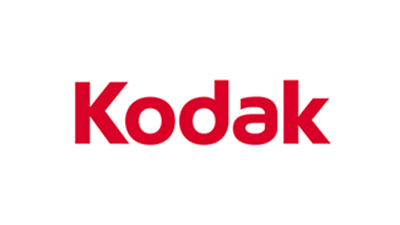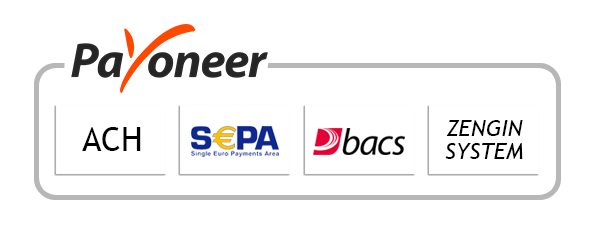
-
Report ID 137896 -
Published Date 23-Sept -
Delivery Format PDF/PPT/Word -
Editor's Rating
-
Report Details
System Infrastructure SoftwareMarket size is expected to grow from the base year to the forecast year (2022-2031)
We are currently facing two pandemics simultaneously: Health and Economy. Salute all health care professionals worldwide who have jumped into this difficult battle for our survival. Techmarketreports (Market.us) works to save the “battle against System Infrastructure Software sectors and the companies that are within them” from a literal crash. Our research team was able to locate the most current information about the Global System Infrastructure Software Market report while also evaluating and highlighting possible opportunities and risk side analyses. We also utilized tactical and strategic decision-making assistance.
This research report gives a trustworthy and thorough analysis of market drivers, significant evolutions, revenue expectations, growth, opportunities, challenges, and restraints along with qualitative information, this report includes the quantitative analysis of various segments in terms of market size, share and market value, etc. for the forecast years up to 2031. The global System Infrastructure Software market is segmented on the basis of type, application and geography. This study explains How would the trend of System Infrastructure Software impact the market over the next 10 years? and many companies operate in the System Infrastructure Software market space across the globe. Do you know who are the key market players, and what strategies have been adopted by them?
Let’s take a glimpse of it one after the other…….
Company Usability Profiles:
The market is characterized by the quality of its products. The System Infrastructure Software market’s major players focus on increasing their manufacturing facilities, R&D investments and infrastructural developments, as well as leveraging integration opportunities throughout the value chain. These strategies enable System Infrastructure Software companies to meet increasing demand, increase their competitiveness, create innovative products and technologies, lower production costs, and grow their customer base.
These are some of the biggest Gartner in System Infrastructure Software Market:
Amazon Web Services, Inc.
BMC Software, Inc.
Broadcom Inc. (CA Technologies)
Cisco Systems, Inc.
Dell Inc.
Hewlett Packard Enterprise
IBM Corporation
Microsoft Corporation
Oracle Corporation
TIBCO Software Inc.Benefits:
– The potential for industry-wide sustainability
– Improved market investment structure
– Greater opportunities
– Major current and predicted trends
Research Methodology
Research study on System Infrastructure Software market will be performed in five phases which include primary research, secondary research, subject matter expert advice, quality check and final review. Based on the understanding of requirements, we conducted secondary research to identify the Segment specifications, qualitative and quantitative data along with the factors responsible for the growth of said market, The secondary sources referred for the study include press releases, company annual reports and research papers related to the industry.
For detailed information about market expansion opportunities, various sources were used, such as trade magazines, government websites, associations, and trade journals. Moreover, paid databases including Reuters, Faction and Bloomberg, One Source, Hoovers and Hoovers were used to extract quantitative as well qualitative data. These databases proved useful for a more detailed technical analysis of the market.
Key Take-Away
– Role of vendors across value chain
– Competition mapping
– End-user analysis to illustrate market strategy
– Opportunities and challenges in the market
Market Taxonomy:
The most important types of System Infrastructure Software covered in this report are:
Storage
Network and System Management
SecurityApplications spectrum:
Building Management
Integrated Communications
Data Center Infrastructure
Cloud IntegrationsTopographical frame:
Region #1: North America(US, Canada)
Region #2: Europe(Germany, UK, France, Italy, Spain, Russia, Rest of Europe)
Region #3: Asia Pacific(China, Japan, South Korea, India, Rest of Asia Pacific)
Region #4: Latin America(Brazil, Mexico, Rest of Latin America)
Region #5: Middle East & Africa (GCC, South Africa, Israel, Rest of MEA)
Approach toward Revenue Growth:
We evaluate the potential revenue from high-growth technologies, and we increase revenues year-on-year through in-depth market intelligence. Our market knowledge has enabled us to discover new revenue opportunities within niche markets that are high-growth. The combination of our revenue model and a wealth of data has significantly improved our ability to leverage clients with a drawn strategy for graphing a rising business model. Techmarketreports (Market.us) allows you to analyze all segments and understand future market conditions. This allows the company to increase its revenue.
5-Point Growth Formula
Techmarketreports (Market.us) Research’s 5-point growth formula provides insight to stakeholders and CXOs on the current market conditions. The report is a great companion for CXOs and stakeholders thanks to the growth formula.
These points are part of the 5-point formula for growth:
1. Current and Future Threats
2. Accurate Trend Analysis
3. Regional Assessment
4. Industrial Analogy
5. COVID-19 Impact
FREQUENTLY ASKED QUESTIONS
Q1. What is the future market value for System Infrastructure Software Market?
Q2. What is the growth rate of the System Infrastructure Software Market?
Q3. What are the recent trends affecting the System Infrastructure Software market?
Q4. What are the different types of System Infrastructure Software used?
Q5. Who are the key players in the System Infrastructure Software market?
Q6. Who are the key end-users of the System Infrastructure Software market?
Q7. Which region is lucrative for the System Infrastructure Software market?
Q8. What is the North American market outlook for System Infrastructure Software?
These are the reasons you should get this report
The report offers an insightful view and a variety of analyses. This includes industry research (global industry trends), and System Infrastructure Software industry share analysis of top players. Additionally, company profiles provide information that collectively provides essential opinions about the market landscape. Market drivers and limitations, market opportunities, market opportunities, and emerging and high-growth segments in System Infrastructure Software Market are all included.
The analysis includes the System Infrastructure Software industry and its development across different industries as well as regions. The report estimates the market size and growth potential for the global System Infrastructure Software Market. This analysis includes applications and representatives.
The analysis also includes a thorough review of the key players in System Infrastructure Software Market along with their company profiles and SWOT analyses, as well as the latest developments and business plans.
The following are the analysis goals of the report:
To exchange in-depth information on the critical elements that affect the growth of the industry (growth capability, chances, drivers, industry-specific challenges and risk factors).
To understand the System Infrastructure Software Market, you can pinpoint its many sub-sectors.
To profile and analyze important players.
To calculate the value and quantity of System Infrastructure Software, sub-markets must be determined based on key regions (various states).
To analyze the System Infrastructure Software Market, including growth trends, potential and their participation in this entire sector.
To assess and study the System Infrastructure Software (volume & market value) of the company, key regions/countries and products and applications. Background information is also available from 2016 to 2021.
To identify, clarify, analyze and compare the market for System Infrastructure Software worldwide, including market share, market competition landscape, SWOT analysis, and future development plans.
To evaluate competitive progress including expansions, arrangements new product launches and acquisitions.
-
Table Of Content
Research Insights & Deliverables
 Development and Future Forecast
Development and Future Forecast Competitive benchmarking
Competitive benchmarking Company Revenue Statistics
Company Revenue Statistics Rising Regional Opportunities
Rising Regional Opportunities Technology Trends and Dynamics
Technology Trends and Dynamics Technology Assessment
Technology Assessment
-
Inquiry Before Buying
Research Insights & Deliverables
 Development and Future Forecast
Development and Future Forecast Competitive benchmarking
Competitive benchmarking Company Revenue Statistics
Company Revenue Statistics Rising Regional Opportunities
Rising Regional Opportunities Technology Trends and Dynamics
Technology Trends and Dynamics Technology Assessment
Technology Assessment
-
Request Sample
Research Insights & Deliverables
 Development and Future Forecast
Development and Future Forecast Competitive benchmarking
Competitive benchmarking Company Revenue Statistics
Company Revenue Statistics Rising Regional Opportunities
Rising Regional Opportunities Technology Trends and Dynamics
Technology Trends and Dynamics Technology Assessment
Technology Assessment














